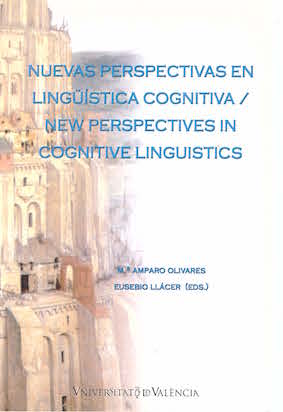What empirical work can tell us about Primary Metaphors
DOI:
https://doi.org/10.7203/qfilologia.14.3999Paraules clau:
teoria de la metàfora conceptual, metàfora primària, estudis empírics sobre metàfora Resum
Resum
La distinció entre Metàfores Complexes i Primàries (Grady, 1997; Lakoff & Johnson 1999) ha adquirit una gran rellevància en els últims estadis de la Teoria Conceptual de la Metàfora (TCM). En aquest treball, es revisen una sèrie d'estudis empírics de cort *psicolingüístico que estudien l'existència d'aquestes estructures en la nostra ment. Mostrarem com molts d'aquests estudis poden ser particularment beneficiosos per la TCM, ja que proposen refinaments en la teoria, són capaces d'assenyalar realitzacions no-lingüístiques d'una metàfora i poden suggerir restriccions en el funcionament d'algunes metàfores proposades. En conclusió, l'intercanvi entre propostes teòriques i treball empíric que és comú en altres disciplines científiques, sembla estar funcionant també en aquest cas.
 Descàrregues
Descàrregues
Descàrregues
Com citar
-
Resum294
-
PDF (Español)326
Número
Secció
Llicència
 Este obra está bajo una licencia de Creative Commons Reconocimiento-NoComercial-SinObraDerivada 4.0 Internacional.
Este obra está bajo una licencia de Creative Commons Reconocimiento-NoComercial-SinObraDerivada 4.0 Internacional.
Tots els documents inclosos a OJS són d'accés lliure i propietat dels seus autors i/o institucions editores, i per tant, qualsevol acte de reproducció, comercialització, comunicació pública o transformació total o parcial necessita el consentiment exprés i escrit d'aquests.
Authors who publish with this journal agree to the following terms:
- Authors retain copyright and grant the journal right of first publication with the work simultaneously licensed under a Creative Commons Attribution License that allows others to share the work with an acknowledgement of the work's authorship and initial publication in this journal.
- Authors are able to enter into separate, additional contractual arrangements for the non-exclusive distribution of the journal's published version of the work (e.g., post it to an institutional repository or publish it in a book), with an acknowledgement of its initial publication in this journal.
- Authors are permitted and encouraged to post their work online (e.g., in institutional repositories or on their website) prior to and during the submission process, as it can lead to productive exchanges, as well as earlier and greater citation of published work (See The Effect of Open Access).



